
OR
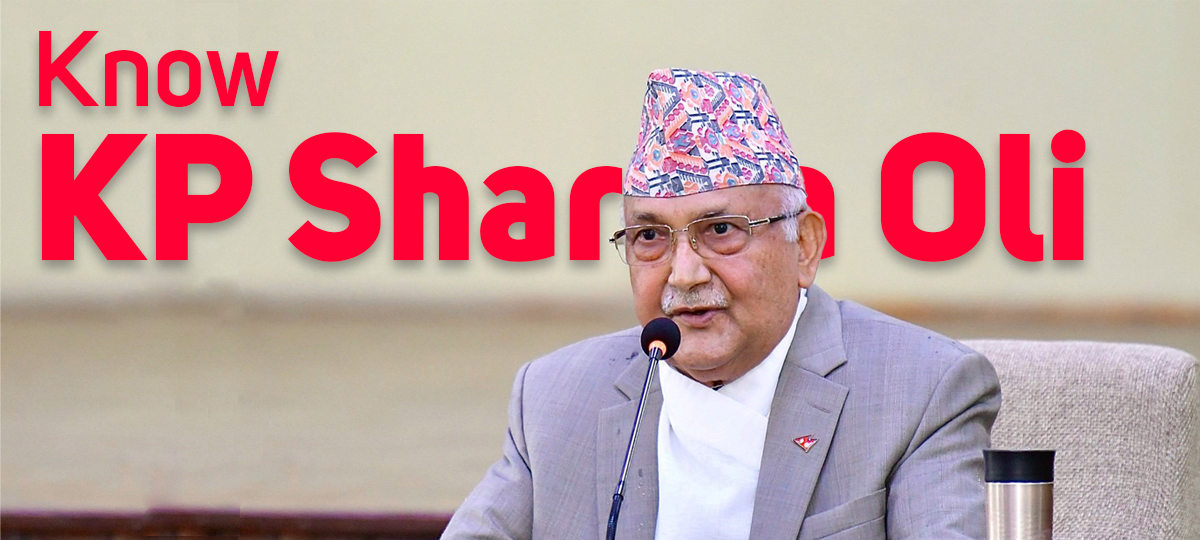
KATHMANDU, July 13: Chairman as well as parliamentary party leader of the CPN-UML, KP Sharma Oli was formally relieved as the 38th prime minister of the country on Tuesday.
Born on 22 February 1952 in Terathum district in eastern Nepal, Oli was appointed the prime minister for a second stint on Feb 15, 2018 after the left alliance, which comprised the UML and CPN (Moaist Center) recorded a landslide victory in the parliamentary elections held in 2017.
Oli’s UML and Maoist Center jointly won as many as 170 seats in the 275-member lower House of parliament.
Oli had also been elected as the Prime Minister on 11 October 2015 after the promulgation of the Constitution of Nepal through the Constituent Assembly.
Oli, later became one of the two chairmen of the Nepal Communist Party (NCP)-- formed on May 17, 2018, as a result of a merger deal between the UML and Maoist party.
However, with intra-party rift escalation at its worst, Oli unconstitutionally dissolved the lower House of parliament on December 20, 2021, which was only to be reinstated by the February 23 verdict of the Supreme Court.
Oli further lost majority in parliament as the March 7 order of the apex court invalidated the NCP and resurrected the two parties --- UML and Maoist Center.
He, on May 10, opted to take a trust vote from the House, however, got only 93 votes. As political parties failed to form a government as per Article 76 (2), he was again appointed the prime minister under Article 76 (3) in his capacity as the parliamentary party leader of the largest party in the 275-member House.
Constitutionally, he was required to go for a floor test within 30 days of his appointment on May 12. He, however, said that he did not have any formidable basis to win the confidence motion from parliament and recommended to President Bidya Devi Bhandari to initiate the new government formation process in accordance with Article 76 (5).
Nepali Congress (NC) President Sher Bahadur Deuba, backed by 149 members of the lower House, and Oli himself staked their claims to the new government. Oli said that he had the support of 153 MPs. President Bhandari, however, trashed both claims on May 21.
The House was again dissolved on May 22 on the recommendation of the Council of Ministers.
Following the dissolution of the House, more than two dozen writ petitions were lodged at the Supreme Court, which later formed a five-member constitutional bench to hear the case.
After nearly a month-long hearing, the bench presided over by Chief Justice Choelendra SJB Rana, issued an order that the House be reinstated and Deuba be appointed the new prime minister.
Oli’s Political History
Oli began his political career in 1966 in opposition to the partyless Panchayat System in place at the time.
He joined the Communist Party of Nepal in February 1970. He became involved in subversive politics and was arrested for the first time in 1970.
A year later he became a district committee member of the party and soon the chief of the Jhapa Movement Organizing Committee in 1972.
Oli was imprisoned for 14 consecutive years from 1973 to 1987. After his release from prison in 1987, he became a central committee member of UML and in-charge of the Lumbini Zone until 1990.
Oli was elected as the leader of the CPN-UML Parliamentary Party in the Second Constituent Assembly on 4 February 2014, defeating party chairman Jhala Nath Khanal by a vote of 98 to 75. Oli was subsequently elected the chairman of CPN-UML in July 2014.
Oli was appointed a Deputy Prime Minister as part of the interim government in 2006. He was also assigned to look into the death of fellow politician Madan Bhandari. From April 2006 to 2007, Oli was the Minister for Foreign Affairs.
He was elected a member of parliament in the House of Representatives from Jhapa district's electorate no. 6 in 1991. Soon he became the chief of the party’s department of publicity.
In the ever-changing political situation of Nepal, Oli served as the Minister for Home Affairs in 1994–1995. He was re-elected to the House of Representatives from Jhapa electorate no. 2 in 1999.
You May Like This
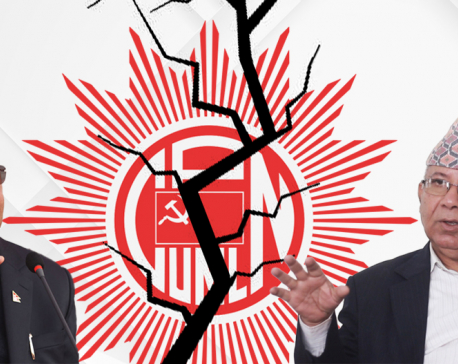
Is the ruling CPN-UML heading toward a formal split?
KATHMANDU, March 20: With the central committee meeting of the ruling CPN-UML on Saturday deciding to seek clarifications from four... Read More...
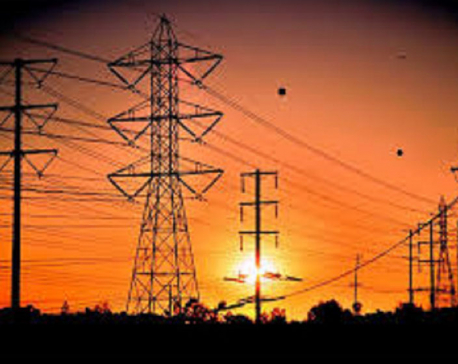
Boost investment in power transmission infrastructures
As Nepal strives to achieve uninterrupted power supply for all its citizens and capitalize on surplus electricity through exports, urgent... Read More...
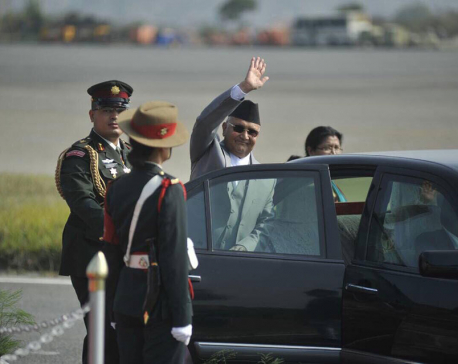
What Nepal needs is India's friendship and support for growth: Nepal PM Oli
In an exclusive interview to The Hindu, Mr. Oli says the bitterness of past relations have been put behind them,... Read More...




Just In
- Sunkoshi-Marin Diversion Project’s tunnel construction nears completion, breakthrough scheduled for May 8
- Govt tightens security arrangement for Third Investment Summit 2024
- Pesticide residue found in vegetables in Nepalgunj
- Aam Janata Party and Samajwadi Jana Ekata Party merge
- 1,600 participants confirmed for Nepal Investment Summit
- Ilam-2 by-elections held peacefully, vote count likely to start tonight
- NEA schedules five-day power cut across Kathmandu Valley for underground cable installation
- Hundreds of passengers including foreign tourists in distress as poor visibility halts flights to and from PRIA







-1200x560-wm_20240427144118.jpg)



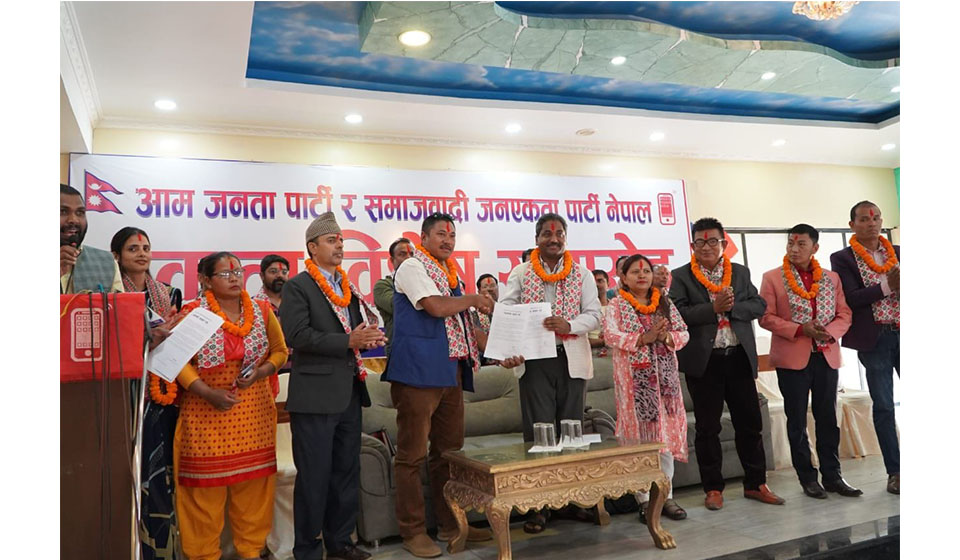

Leave A Comment